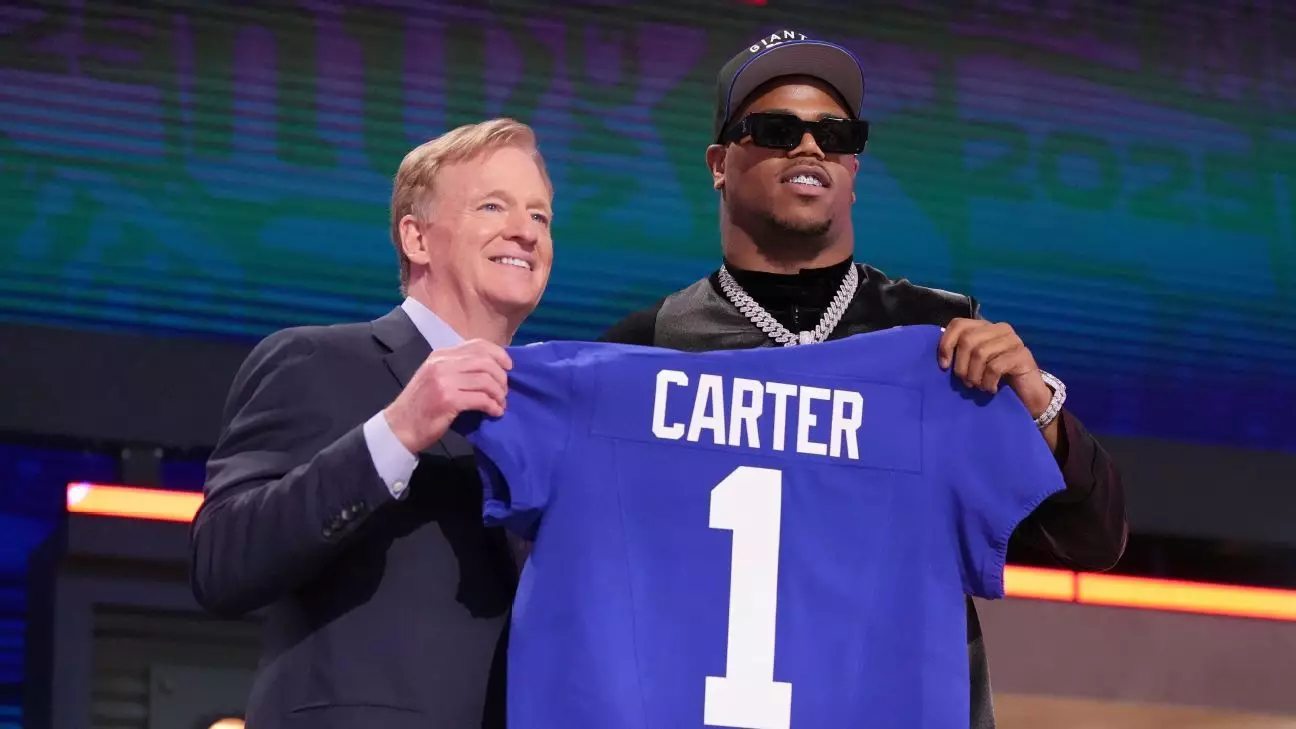The NFL draft is often heralded as a pivotal moment for teams and aspiring players alike, an event filled with anticipation, hope, and excitement. However, this year’s proceedings took an unexpected turn as a series of prank calls infiltrated the integrity of the selection process. What should have been a moment of triumph for rookie pass rusher Abdul Carter turned into a bizarre episode indicative of a troubling facet in today’s digital age: the rise of prank culture.
The Prank Call Incident
While Jacksonville Jaguars made their pivotal choice during the draft, Carter received an inappropriate call claiming to be from a Jaguars representative, insisting he would be the No. 2 pick. It’s alarming how easily the anonymity of private numbers can be exploited, leading to this kind of deception during such an important event. For someone like Carter, who worked tirelessly to reach this milestone, receiving such a call must have thrown him into a whirlwind of emotions ranging from confusion to anger. His agent, Drew Rosenhaus, dismissed the call as nonsense, demonstrating a level of composure in the face of absurdity.
But the broader implications are worth noting. “It’s unfortunate that these private numbers are getting to the people making the prank calls,” Rosenhaus said, reflecting on a problem that goes beyond Carter, affecting many budding NFL stars. The sanctity of the draft should not be diluted by childish antics, especially when the dreams of young athletes are at stake.
The NFL’s Response: A Questionable Approach
The NFL’s swift response to a similar prank call involving Atlanta Falcons defensive coordinator Jeff Ulbrich’s son, who targeted now-Browns quarterback Shedeur Sanders, showcases a troubling pattern. The league slapped the Falcons with a hefty fine, yet the real concern should be the culture that allows such behavior to flourish. A mere slap on the wrist in the form of financial penalties may not be enough to eradicate this issue from its roots.
Furthermore, the NFL’s ongoing investigations into other prank calls received by players like Mason Graham and Tyler Warren reveal a disturbing trend. As the league yanks at the threads of accountability, one must contemplate whether past failures in managing player privacy have led to carve-outs for these strangers to invade the sanctum of the draft.
The Impact on Player Morale
This incident raises critical questions about the overall impact of prank calls on the morale and psyche of drafted players. For many young athletes, these moments are not just about the game; they are steeped in personal history and the culmination of years of hard work. Faced with frivolous distractions, the burgeoning NFL stars may find it increasingly difficult to maintain focus amid the chaos.
In a turbulent media environment where players’ reactions and decisions are scrutinized, moments of levity can easily morph into unsettling distractions. The NFL must take a more proactive stance to safeguard the emotional experiences of its players during such monumental moments.
The prank calls during the NFL draft highlight a fracture in the system that should champion respect and integrity. It’s high time the league interrogates the culture that breeds such behavior and take meaningful action aimed at protecting its players. After all, drafting the future of the league should not come with the baggage of unwanted distractions, especially ones that undermine the hard work and aspirations of young athletes.


Leave a Reply